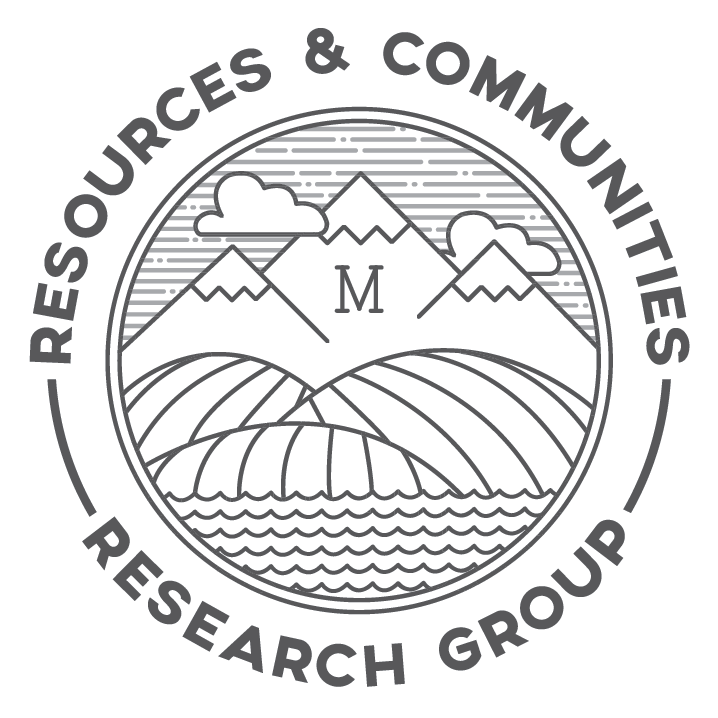Researchers have been using metrics of social and economic well-being for some time as a tool to understand and compare communities from a distance, an approach that remains a key strategy for regional studies. I was fortunate to receive training in the use of public datasets to track economic and social well-being from Ray Rasker and his team at Headwaters Economics. Currently, I focus primarily on the governance and institutional dimensions of community resilience, relying on governance histories and qualitative data.
CURRENT PROJECTS in this space:
Prairie Communities in Action refers to a cluster of small community-based projects underway in central Montana that have community resilience as an object of inquiry and as well as desired outcome. The Charles M. Russell National Wildlife Refuge Community Working Group acts as an unofficial advisory board for this work, which has included the following specific efforts to date: 1) Petroleum County Land Ownership Study; 2) Student service learning project in Petroleum County; 3) Conservation District resilience assessment; 4) Post-fire assessment in Garfield County.
White Sulphur Springs Community Consultation is an applied project focused on enabling the process of developing a benefits agreement in Meagher County in anticipation of a proposed copper mine (Black Butte). The project involves summarizing best practices and academic literature on CBAs/CBFs, supporting the group (and analyzing its process), and conducting primary research in comparable mining communities.
MT CREWs (Consortium for Research on Environmental Water Systems) is a major interdisciplinary research on water quality involving the entire Montana University System. RCRG is co-leading the integrative social science research which focuses on the links between community resilience, governance and social trust. Our partner in this work is the Human Dimensions Lab at University of Montana.
RECENT PUBLICATIONS (available on request):
2018. Haggerty, J. H., K. K. Smith**, T. Mastel, and P. Lachapelle. Assessing, Monitoring, and Mitigating Energy Boomtown Impacts in the U.S.: Evaluating a Public Health Model. Impact Assessment and Project Appraisal. 36(1): 115-127.
2018. Smith, K. K.** and J. H. Haggerty, “Devolved Governance & Alternative Dispute Resolution Programs: An Example from the Bakken.” In Governing Shale Gas: Development, Citizen Participation and Decision Making in the US, Canada, Australia and Europe, eds. J. Whitton, J. Cotton, I. Charnley-Parry & K. Brasier. NY: Routledge.
2018. Bills, K.** and J. H. Haggerty, “Governing Unconventional Legacies: Lessons from the Coalbed Methane Boom in Wyoming.” In Governing Shale Gas: Development, Citizen Participation and Decision Making in the US, Canada, Australia and Europe, eds. J. Whitton, J. Cotton, I. Charnley-Parry & K. Brasier. NY: Routledge.
2016. Haggerty, J. H. and K. McBride*. Does local monitoring empower fracking host communities? A case study from the gas fields of Wyoming. Journal of Rural Studies 43(Feb.): 235-247.
